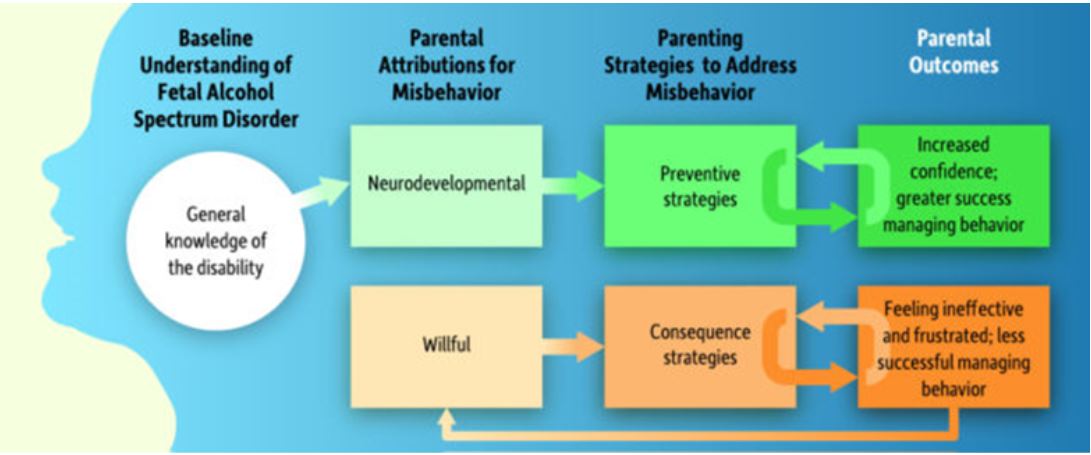Parent and Caregiver Support
Where to start?
Whether you are new to Wisconsin, new to FASD, or are looking to add resources to your plan, we are here to help you get connected.
One of the best ways to find resources and support for yourself and your family is by talking to other parents and caregivers who may have been down the same road.
Feeling Alone and Overwhelmed? Here are some ideas:
- Join the WI FASD Family Network page on Facebook
- Contact Orchids to ask how to join or start an FASD parent support group in your area of Wisconsin
- Contact your local CYSHCN resource help line to ask for parent support resources for children/adults with disabilities in your area
- Contact Parent to Parent and ask to be linked to a parent with similar challenges
- Join the monthly FASD Parent Support Group from our friends at DoubleArc in Ohio
- Take an on-line or in-person class on parenting
- Caregiver Kick Start Series (Jeff Noble)
- Triumph Today Online (DoubleArc)
- Join an online support group such as the following:
- Explore Wisconsin Medical Home Initiative Support to Families
Short Videos
How To Handle Manipulation and Control (Karen Purvis)
Trust Based Relational Intervention – TBRI
Beyond the Diagnosis: Effective Interventions for Children and Adolescents with Fetal Alcohol Spectrum Disorders
Language and Communications Problems
Tips for Parents and Caregivers
Blazing New Homeschool Trails: Educating and Launching Teens with Developmental Disabilities by Natalie Vecchione and Cindy LaJoy
Caregiver Burnout
Caring for someone with FASD often demands a lot of your time and energy. It is normal to often feel frustrated, confused, overwhelmed. It is normal to experience burnout, so know how to recognize and care for it. Do you recognize yourself in these stages?
The honeymoon phase:
The caregiver is confident, and sees caregiving as a part of their duty. They take their duties positively, with the belief, “I can handle this.” They believe this job is demanding, but can be very rewarding and that they have what it takes to be successful.
The questioning phase:
The caregiver feels there are ups and downs in their caregiving journey, and begins to experience some self-doubt. They try harder at what they believe will work.
The brownout phase:
The caregiver feels exhausted, confused, overwhelmed, disoriented. They have thoughts like, “I can’t do this.” They begin to see caregiving as a chore or a burden, without any reward. They feel lost, alone, helpless, angry, and believe they are at fault.
The burnout phase:
The caregiver distances themselves from the person they are caring for. They may physically leave or caregiving may become mostly mechanical. The caregiver may experience themselves as depressed, cynical, or unable to feel anything.
CAREGIVER BURNOUT STRATEGIES:
- Reach out for resources for information, services, and support
- Get respite care – take a break – find resources
- Care for yourself first – you can’t care for others if you don’t care for yourself first
- Increase your understanding of FASD by reading about FASD, watching a video on YouTube, talking to others
- Adjust your expectations to fit the capabilities of the person with FASD – Grieve what isn’t when you need to
- When you are frustrated, accept your feelings and needs while you avoid blaming yourself or the person with FASD
- Look for and enjoy strengths in the person with FASD – do something you both enjoy
- Congratulate small successes and accept that growth will take longer
UNDERSTANDING THE CRUCIAL ROLE OF LEARNING ABOUT FASD WHEN YOU ARE A CAREGIVER
Research has shown that a critical intervention for children and adults with FASD is for the caregiver to obtain knowledge of the disability. (Petrenko, C.M., Pandolfino, M.E., & Roddenbery, R. (2016). The association between parental attributions of misbehavior and parenting practices in caregivers raising children with prenatal alcohol exposure: a mixed-methods study. Research in Developmental Disabilities, 59, 255-267. doi: 10.1016/j.ridd.2016.09.005

Medication
Psychotropic Medication Algorithm for FASD/Prenatal Alcohol Exposure
If your family member with FASD is taking medication for mood, attention, etc., please make sure the prescriber reads this document, about a medication algorithm for individuals diagnosed with FASD or prenatal alcohol exposure.
